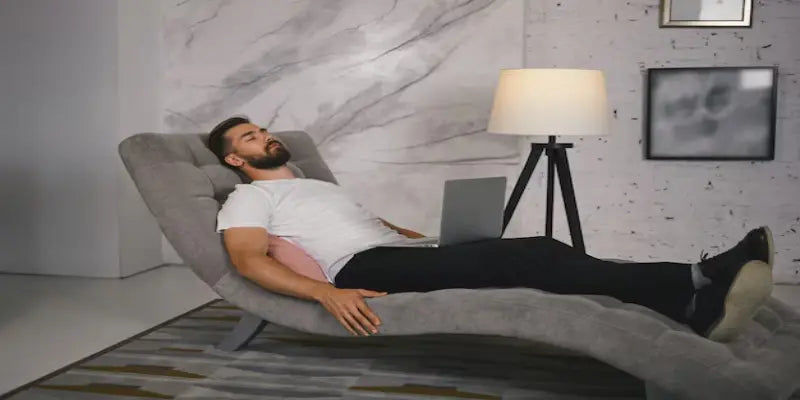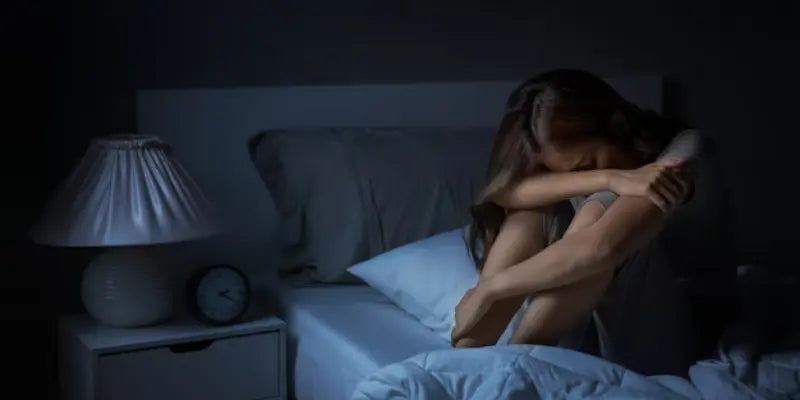
Humidifiers to Help You Sleep Better
Many of us get itchy eyes, scratchy throats, chapped lips, and nosebleeds throughout the winter. Low humidity in your home impacts the moisture in your mucous membranes and skin. Dryness can cause all of these unpleasant sensations and pain in the winter.
A humidifier can help you deal with all of these winter issues. Humidifiers counteract these concerns by adding moisture to the air, which improves the quality of your sleep. If you've never heard of the phrase humidifier before, don't worry; this blog is a comprehensive guide for you. In this blog, we'll learn more about humidifiers, their different forms, and the benefits and drawbacks of using one.
What is a Humidifier?
Humidifier Meaning - Humidifiers are devices that add moisture to the air to avoid dryness, which can cause irritation in various parts of the body. Humidifiers are particularly useful for treating dry skin, nose, throat, and lips. Humidifiers can also help limit viral spread and may be beneficial in treating certain causes of the flu or common cold. However, overusing humidifiers or failing to clean them properly can exacerbate respiratory difficulties and lead to other health issues.
Types of Humidifier
There are different types of humidifiers available on the market. Now, let's quickly go over the most common type for your home:
- Ultrasonic Humidifiers: These use ultrasonic vibrations to create a thin mist of water that disperses throughout the air. They are quiet, making them ideal for bedrooms.
- Central Humidifiers: These are integrated into your HVAC system and treat the entire house by delivering humidified air via ducting. These are ideal for larger spaces.
- Evaporative Humidifiers: Also known as cool mist humidifiers, these use a fan to blow air over a water-soaked filter, causing the water to evaporate and increasing humidity. They are also energy efficient.
- Impeller Humidifiers: These use a rotating disc to shoot water at a diffuser, breaking it down into small droplets that are then released into the air as a cooling mist.
- Steam Vaporizers: These portable devices convert water into steam, which is somewhat cooled before being released into the atmosphere. They're very effective for alleviating respiratory congestion.
Benefits Of a Humidifier While Sleeping
Sleeping with a humidifier every night helps you with many common sleep problems. Here we'll look at why you should sleep with a humidifier every night and the seven benefits it provides.
Makes you Feel Warm
You can make your home feel warmer without turning up the temperature. The humidifier adds moisture to the air, making it seem warmer. This enables many homes to decrease the thermostat and preserve energy, saving money on their heating bills. The increased humidity will also reduce static electricity in the home.
May Keep you From Becoming Sick
Running a humidifier while sleeping can lower your risk of getting sick. These airborne bacteria interact with moisture and become too heavy to float through the air. This is particularly true of the common cold and influenza. A humidifier can also be useful if you are already unwell. Dry air might produce a dry cough, keeping you awake at night. Increasing humidity in the air let's more moisture into your body, making your cough more productive and allowing you to sleep more soundly.
Reduces Snoring
A humidifier is also able to relieve snoring and sleep apnea. Snoring can be caused by a variety of factors, but dry air is a common contributor. When the air is dry, a person's airways are likely to be dry, which can exacerbate snoring and irritate the throat. A humidifier adds moisture to the air, which can help ease some symptoms. The increased humidity will also reduce allergies in your home's air. Dry air often contains allergens, which can irritate the throat and disrupt sleep. If you wake up with a dry mouth, you probably have low humidity in your home and should consider using a humidifier.
Keeps Skin and Hair Moist
Low humidity in the air causes skin, lips, and hair to become dry and brittle in the winter. This can often cause your skin to itch, keeping you awake at night. It is believed that this is because the skin's ability to retain moisture diminishes over time. Including a humidifier in your house can help keep your skin and hair healthy.
Good for your Home
Dry air might cause damage to your home. To perform optimally, wood requires a steady amount of moisture. Low humidity will eventually cause wood furniture to break. It can also loosen the joints in a hardwood floor. Using a humidifier might help restore life to your wood.
Cons of Using a Humidifier
They can Produce Mold and Bacteria
Too much humidity can promote the growth of mold and bacteria. To avoid this, use a hygrometer to measure the relative best humidity for sleep in your home. Some humidifiers include built-in humidity sensors, while others require a separate meter. To avoid bacteria and mold, clean your humidifier as directed by the manufacturer and change the filters on a regular basis.
Humidifiers can Create Excess Moisture
Air that is extremely humid (over 50%) might feel heavy and make breathing more difficult. To avoid this condition, keep your home's relative humidity below 50%.
They can Produce Dust Mites and White Dust
If you use a humidifier to enhance the best humidity level for sleeping in your house, you may create an atmosphere conducive to dust mite growth. Tap water contains minerals that can accumulate in the humidifier and be released into the air as "white dust," causing respiratory difficulties. To avoid white dust, use distilled water in your humidifier rather than purified or filtered tap water.
Also Read:- Is a Humidifier Good for a Baby?
What’s the Difference between a Humidifier and an Aroma Diffuser?
Although humidifiers and diffusers both use liquids to diffuse into the air, they are not the same thing. The main difference between a humidifier and an oil diffuser is their output: humidifiers merely emit water vapor into the air, but diffusers produce essential oils encapsulated in tiny water droplets. Humidifiers are intended to enhance the moisture in the air, whereas diffusers are intended to spread an aroma around a room.
Should I Leave my Humidifier on all Night?
Yes, it is normally safe to leave a humidifier running all night as long as the humidity levels are monitored to prevent over-humidification. The optimal humidity level for a home is 40-60%, whereas humidity levels exceeding 60% can promote mold and bacteria growth.
Conclusion
Using a humidifier while sleeping can have many different advantages for respiratory health, skin and hair hydration, eye and head comfort, overall comfort and well-being, and increased sleep quality. People who maintain the appropriate humidity level in their bedroom can receive relief from respiratory pain, reduced snoring, and a more relaxing sleep environment.
You can consider investing in the Ultrasonic Humidifier as it helps you maintain the humidity to an optimal level and also helps increase your blood oxygen level by 20%. You can also add essential oil into the humidifier along with the water to get extra benefits.
The Rene-Maurice Ultrasonic Humidifier can create a calming atmosphere that can promote relaxation and improve sleep quality. By adding soothing scents like lavender or chamomile, it helps to ease stress and anxiety, making it easier to fall and stay asleep.








